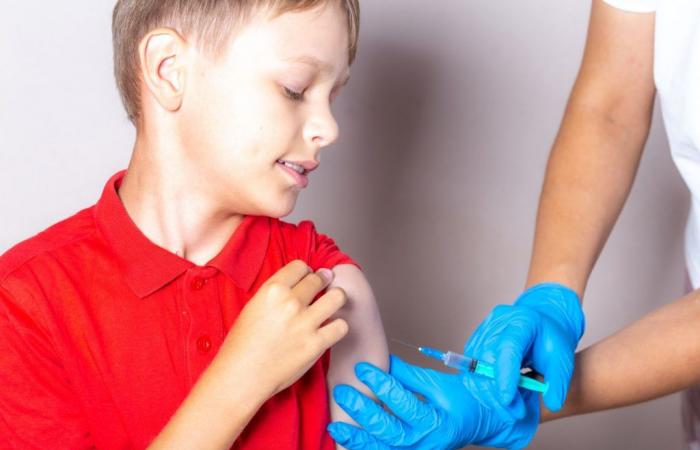
The vaccination campaign against papillomaviruses is renewed in schools. The campaign is led by the Grand Est Regional Health Agency, the academies of the Grand Est Academic Region and Health Insurance. To tell us about it, Anaïs Simon, project manager at the infectious and communicable diseases center at ARS Grand Est, but also project manager on the deployment of HPV vaccination in schools.
Sound No. 1 – 9,000 students vaccinated against papillomavirus last year, a new campaign is launched in colleges
What are papillomaviruses?
So, human papillomaviruses, which are also called HPV, are very contagious viruses. You should know that over the course of their lives, 80% of women and 80% of men will be exposed. These HPV can be transmitted by simple contact to the genitals (mucous membranes and skin), most often during sexual intercourse with or without penetration. You should also know that there are more than 200 types of human papillomavirus, so some are the cause of pre-cancerous lesions and cancers such as cancer of the cervix, vulva, vagina, the anus or even the ENT sphere.
Every year in France, we have more than 6,400 new cases of cancer caused by HPV, so if these cancers mainly affect women, you should also know that it affects more than a quarter of men. These HPV are also responsible for anogenital warts which seriously degrade the quality of life.
Why a vaccination campaign in schools? Who are the audiences concerned?
We can consider that the school is a privileged place to carry out public health interventions. This vaccination campaign is a lever to reduce inequalities in territorial and social access to vaccination, and to be able to achieve the objectives of 80% vaccination coverage against HPV set in particular by the ten-year strategy to combat cancer. , by 2030.
Furthermore, we know that this type of vaccination campaign within educational establishments has already largely proven itself in several countries such as the United Kingdom, Sweden or Australia, but also during the experiment carried out in the regions. Grand-Est, from 2019 to 2022.
This campaign concerns all 5 year old studentse public colleges, but also private colleges under voluntary contract. This vaccination is completely free for families. Concretely, this vaccination will be carried out directly within the colleges, by mobile teams from vaccination centers authorized or approved by the ARS. In the Grand-Est, complete vaccination will be carried out over a school year, in two passages, with a minimum interval of 5 months.
If we want our child to be vaccinated, what should we do?
In fact, parents of students in class 5e are recipients of a dematerialized information kit on HPV vaccination, and on the progress of the campaign. Student participation is voluntary and is subject to the authorization of both parents who are invited to indicate via an online form whether or not they authorize the vaccination of their child.
This access to the form is simply provided to the legal representatives by the heads of establishment via the ENT, the Digital Work Space.
Last year, what was the campaign’s outcome?
In the 2023-2024 school year, we had nearly 9,000 students in year 5e who were vaccinated in the Grand-Est. We also know that this campaign had a positive impact on vaccination in the city.
For comparison, at the end of September 2023, in Grand-Est, HPV vaccination coverage, with at least one dose, among young people born in 2011, was 41% among girls, and 29% among boys. After a first phase of the vaccination campaign, this coverage as of December 31, 2023 reached 58% among girls, and 47% among boys, so that includes vaccinations carried out in the city, and those in college, an increase of 17 points for girls, and 18 points for boys. We can therefore say that this is a rather encouraging assessment for the years to come.
Today, what can you say to people who are hesitant about vaccines?
So, to tell them that the HPV vaccine is already one of the only ones available against cancer, you should know that it prevents up to 90% of HPV infections that cause cancer. These are also vaccines that have been on the market for more than 10 years. Worldwide, more than 300 million doses have been distributed, including 6 million in France. We also have hindsight on this vaccination. International monitoring and the results of specific studies have confirmed the excellent safety profile of this vaccination, and it is recognized by the World Health Organization.





